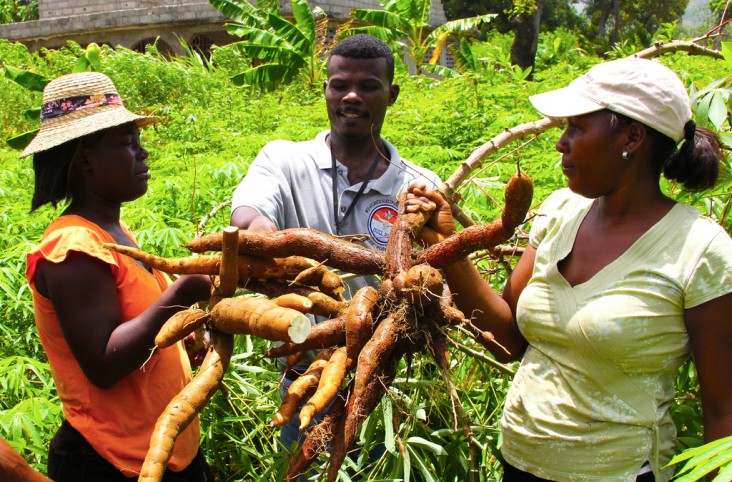- What We Do
- Agriculture and Food Security
- Democracy, Human Rights and Governance
- Economic Growth and Trade
- Education
- Ending Extreme Poverty
- Environment and Global Climate Change
- Gender Equality and Women's Empowerment
- Global Health
- Water and Sanitation
- Working in Crises and Conflict
- U.S. Global Development Lab

Improving agricultural productivity, profitability, and sustainability in the developing world depends on the ability of rural people in those countries to adopt change and innovate in their use of technologies, management systems, organizational arrangements, institutions, and environmental resources. Expanding the people’s capacity to innovate depends on their access to knowledge and information services.
Rural extension and advisory services meet the immediate needs of farmers and other rural people as they change their production and livelihood systems. As a whole, these efforts:
- Provide advice to farmers on problems or opportunities in agricultural production, marketing, conservation, and family livelihood
- Facilitate development of local skills and organizations and links with other programs and institutions
- Transfer new technologies to farmers and rural people
- Address public interest issues in rural areas: resource conservation; health and food security monitoring; agricultural production monitoring; food safety, nutrition and family education; and youth development
USAID's Approach
Transitioning from a focus on public sector technology transfer, USAID’s recent efforts in extension and advisory services recognize the more complex agricultural knowledge and information systems that serve diverse needs of farmers. USAID works to:
- Involve diverse public and private sector providers, including input suppliers, produce buyers, farmer organizations, NGOs, consultant firms, and government organizations
- Efficiently deliver knowledge and information services through the private sector or mass media
- Address problems of diverse groups of rural people, including commercial farmers, women, resource poor farmers, youth, and non-farm populations
- Involve cost-recovery, fee-for-service, and cost-sharing to improve financial sustainability and ensure responsiveness to client needs
- Employ demand-driven, participatory approaches and decentralized administration to improve effectiveness
- Provide market information, organizational development, and family services as well as agricultural production information and technologies








Comment
Make a general inquiry or suggest an improvement.